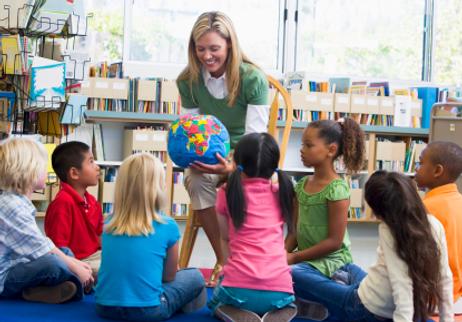Private schools learned a long time ago that small is good. Why? Because parents wanted more personal attention for their children than they could get in most large public schools. They didn't want their children to be a number. They didn't want their children to be anonymous. So in small schools teachers and all the other staff members would know students by name.
The Institute for Local Self-Reliance offers more reasons in support of small schools: "One of the most effective ways to improve student achievement and curb school violence is to reduce the size of the nation's schools. Hundreds of studies have found that students who attend small schools outperform those in large schools on every academic measure, from grades to test scores. They are less likely to drop out and more likely to attend college. Small schools also build strong communities. Parents and neighbors are more likely to be actively involved in the school. The students benefit from community support and the school, in turn, fosters connections among neighbors and encourages civic participation."
This TEDx talk describes using innovative teaching methods in the K-12 classroom.
Low Student-to-teacher Ratio
Most prep schools or schools offering Grades 9 through 12 have a student population of about 300-400 students. Some schools are even smaller. As well, most PK-6 elementary schools tend to be small. Of course, you will find larger and smaller schools. Exeter is an example of a very large prep school. With approximately 1100 students and commensurate numbers of faculty and staff, Exeter is a large institution. By contrast, South Kent School is an example of a small school with 150 students. What do Exeter and South Kent have in common? A low student-to-faculty ratio. Typically private schools have student-faculty ratios in a range of 10:1. This low student-to-teacher ratio is the genius of private schools. This is what you are paying for when you send your child to private school: the personal attention to her learning needs.
Student Accountability
A low student-to-faculty ratio is another way of saying that the class sizes are small. That is a good thing. You see, in a small school, your daughter cannot escape and hide from view as she can in a large public school with large class sizes. When she sits around a Harkness table with fourteen other students and the teacher in the middle, there's no hiding anything.
As a result of small classes, teachers can dig deeply into the material. They can explore the sidebars and cement the fundamentals in place. They can facilitate discussions with their students. Sharing ideas and opinions gives students much-needed practice in critical and analytical thinking. Parenthetically, it is a very satisfying feeling to truly teach as one can do in a private school instead of playing traffic cop as one does in most public schools.
Cross-curricular Teaching
Most students attending a private school want to learn. It's cool to want to learn. Besides employing credentialled, experienced teachers in the various subject areas, most private schools also teach cross-curricular. Cross-curricular teaching means, for example, that the math teacher relates quadratic equations to ancient history or other subjects. And the physics teacher shows how his subject fits into all the other academic subjects. In other words, teachers do not teach their subjects in isolation, in a silo. Instead, they show how their subjects relate to all the other subjects in their curriculum. Writing in Edutopia, Ben Johnson describes cross-curricular teaching as "deep learning." He explains it as follows: "Deep learning is like taking a long drought from a well of knowledge as opposed to only sipping from many different wells. Deep learning implies that students will follow a particular stream of inquiry to the headwaters rather than simply sampling all the possible streams. Teachers know all too well the outside forces that pressure them to limit how deeply their students can drink from any single well."
This video explains cross-curricular teaching.
Teaching Critical Thinking
Small classes encourage the learning and understanding of critical thinking. As Walden University states: "Critical thinking goes beyond memorization, encouraging students to connect the dots between concepts, solve problems, think creatively, and apply knowledge in new ways. Despite myths that critical thinking skills are only applicable to subjects like science and math, the reality is that these skills—which are based on the evaluation and application of knowledge—are vital not only for success in all subject areas but everyday life as well." Of course, teaching critical thinking requires teachers who can think themselves critically and are skilled and experienced at teaching it to their students.
Athletics and Extracurricular Activities
You already have figured out that a small school encourages community and bonding among the various community members. But it gets even better because in a small school, in almost every private school, students are required to participate in athletics and extracurricular activities. Your child's teachers coach both sports and extracurricular activities. So, your child has the opportunity to see his teachers in a different role. Teaching young people that multiple skill sets are a valuable part of a person's makeup is another critical function of any school. It just happens to be much easier to pull off in a small school setting.
Managing A Small School
Having taught in a couple of small schools, I can tell you from my own experience that you feel intimately involved with the day-to-day running of the school. It doesn't matter whether you are teaching 6th-grade English because you will know what's happening in the 3rd-grade music class. From the head of school's point of view, her small school is much easier to manage than a school two or three times its size. She can keep her hand on the tiller at all times, steering her little ship safely. Best of all, she can keep in constant touch with her parents. Keeping them happy and talking positively about her school guarantees full classes next year and the years after.
Small is indeed good!
Questions? Contact us on Facebook. @












